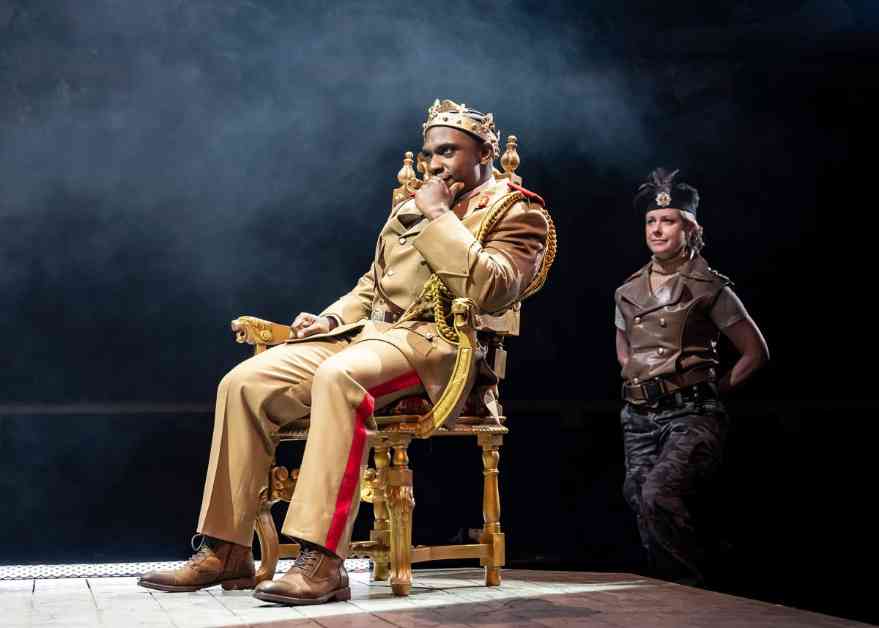In the recent production of Henry V at Chicago Shakespeare Theater, the traditionally heroic King Henry V is portrayed as a symbol of unchecked nationalism. Directed by Chicago Shakes artistic director Edward Hall, Henry, played by Elijah Jones, goes to war for reasons that may not align with the typical heroic narrative. His motivations include personal hurt feelings and an inflated ego that blinds him to the true intentions of the bishops urging him to invade France.
Jones’s portrayal of Henry V is intense and commanding, bringing a new perspective to the character. The famous St. Crispin’s Day Speech, usually seen as inspiring, takes on a more dangerous tone in this production. When Henry urges his men to invade a sovereign country, the consequences of war are made starkly clear.
One of the most striking moments in the play is when Henry is confronted by a soldier who questions the value of dying for honor. Instead of considering the soldier’s perspective, Henry insists that all the carnage of war is justified by his divine right to rule, placing the responsibility on God. This portrayal highlights the dangers of a leader who believes they are chosen by a higher power to carry out their actions.
While the production is powerful, some aspects could be improved. The battle scenes, while visually stunning with the use of lighting, become repetitive and muddled. However, the sound design by Emily Hayman, incorporating nationalistic anthems and punk rock, adds depth to the production.
The ensemble cast delivers mesmerizing performances, with standout work from Rachel Crowl as the Welsh captain Fluellen and Jaylon Muchison as a French messenger. These performances bring depth and nuance to the characters, adding layers to the story.
Overall, Chicago Shakespeare Theater’s production of Henry V offers a fresh perspective on a classic character, raising questions about nationalism, power, and the consequences of war. Elijah Jones’s portrayal of Henry V is riveting and thought-provoking, challenging audiences to reconsider their views on heroism and leadership.


